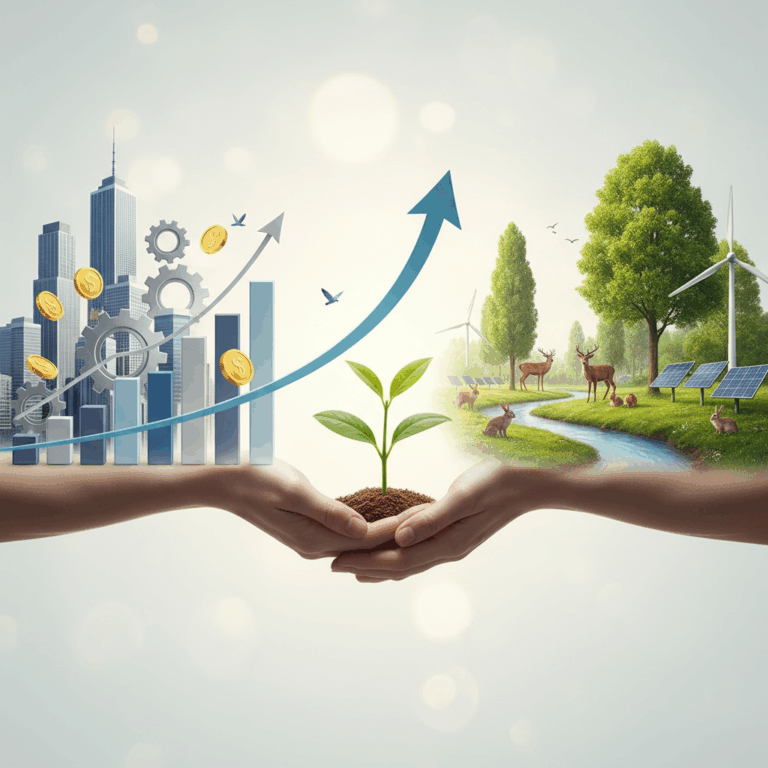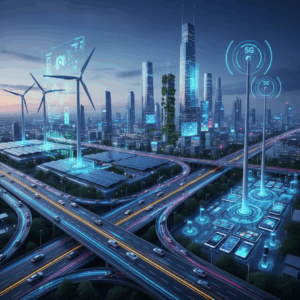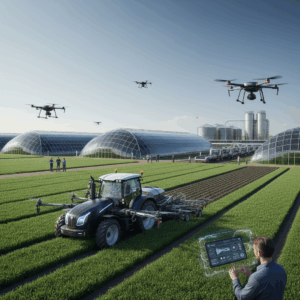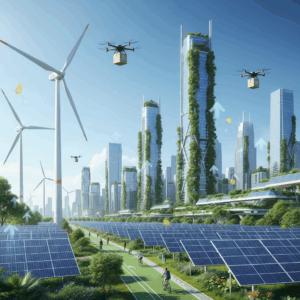Fundamentals of sustainable economics
The sustainable economy It integrates economic growth, environmental preservation, and social justice to create value without depleting natural resources.
This approach seeks to regenerate the environment while promoting broad social benefits, ensuring balanced and sustainable development.
Its success depends on innovative and efficient strategies that allow progress without compromising the well-being of future generations.
Essential pillars: growth, environment and social justice
The fundamental pillars of a sustainable economy are economic growth, environmental protection, and social justice, which are interdependent.
Growth must be compatible with the conservation of natural resources and social equity to guarantee quality of life and sustainability.
Social justice ensures that economic benefits are distributed equitably, avoiding inequalities that affect sustainable development.
Innovation and efficient use of resources
Innovation is key to optimizing the use of resources, reducing waste, and promoting technologies that support a circular economy.
Efficient use involves maximizing the value of the materials and energy used, promoting practices that improve productivity without harming the environment.
This combination boosts the creation of green jobs and new sustainable business models, strengthening both the economy and the environment.
Economic models geared towards sustainable development
Sustainable economic models seek to integrate financial growth with environmental conservation and social well-being, promoting balanced development.
These models promote innovation and the responsible use of resources, fostering value creation without compromising the future of the planet.
By adopting approaches such as the circular, impact, and collaborative economy, more resilient and equitable systems are fostered.
Circular economy and its impact on reuse
The circular economy is based on reducing, reusing, and recycling materials to minimize waste and maximize the efficiency of resource use.
This model creates opportunities for green businesses, drives innovation in durable products, and promotes the creation of sustainable jobs.
By closing production cycles, pressure on natural resources is reduced, helping to mitigate pollution and climate change.
Impact economics: social and environmental benefit
Impact economics measures success not only in financial terms, but also by the social and environmental value generated by economic activities.
This approach promotes transparency, innovation, and cross-sector partnerships to address environmental and social challenges.
Companies and organizations adopt goals that balance profitability with responsibility, improving collective well-being and environmental sustainability.
Collaborative economy and resource optimization
The collaborative economy promotes cooperation and the shared use of resources, avoiding excessive consumerism and waste.
Through platforms and collaboration agreements, access to goods and services is facilitated, increasing efficiency and reducing negative impacts.
This way of operating promotes more responsible and sustainable habits, strengthening communities and fostering balanced economic growth.
Ecological limits and economic growth
Traditional economic growth faces limits due to the finite nature of natural resources and the planet's capacity to regenerate them.
It is crucial to recognize that the economy must operate within ecological limits to avoid irreversible damage and preserve future well-being.
Therefore, a sustainable economy seeks a balance where economic development does not compromise environmental and social health.
Ecological economy and balance with the planet
Ecological economics argues that unlimited growth is not viable, recommending a balance between economic activity and ecological capacity.
This approach prioritizes innovation and efficiency to improve quality of life without expanding the massive consumption of resources.
The goal is sustainable development that respects natural limits, focusing on qualitative changes and holistic well-being.
Strategies for responsible economic growth
To achieve responsible economic growth, it is essential to promote technological innovation that optimizes resources and reduces negative impacts.
Efficiency in processes and products contributes to maximizing economic benefits while preserving the environment.
These strategies support development that does not compromise the well-being of future generations, promoting a sustainable balance.
Promoting technological innovation and efficiency
Technological innovation drives the creation of solutions that improve resource efficiency and reduce environmental pollution.
Adopting clean technologies and optimized processes allows for minimizing costs and maximizing economic and environmental value.
Furthermore, innovation facilitates the development of green jobs and sustainable business models that strengthen the economy and protect the planet.
Prioritize sustainable development over unlimited growth
Sustainable development prioritizes quality and balance over unlimited economic growth, respecting the planet's ecological limits.
This vision promotes qualitative changes such as greater social welfare, innovation and efficiency, rather than uncontrolled quantitative expansion.
This ensures progress that benefits society and protects natural resources, guaranteeing long-term viability.






